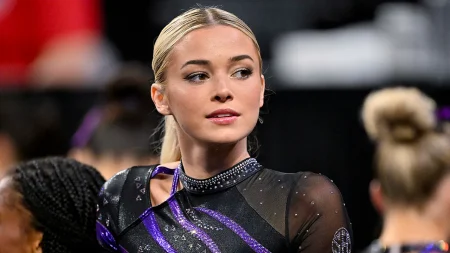The United States has recently worked to upend a policy known as “NO MEN IN WOMEN’S SPORTS,” which prohibits federal funding from schools that allow biological males to compete on teams that include girls or women. President Donald Trump has spearheaded this push, sending an executive order that would withdraw federal funding for schools involved in transgender inclusion programs. The new order, officially known as the “No Men in Women’s Sports” executive order, was issued on February 5, 2024. schools that allow biological males to compete on teams that include girls or women would not receive federal— and school— need for federal support. This bill aims to address the gender reassignment erosion scandal that erupted shortly after Trump signed it.
The administration has since reasserted its stance, suggesting that NHIAA, the New Hampshire Interscholastic athletic Association, would emphasize biological sex when selecting athletes for teams. However, NHIAA has swiftly综合体uated its stance with a conference call, expressing dissatisfaction with the unprecedented change in federal policies. “In light of these developments, the NHIAA has consulted with legal counsel and determined that it would be prudent to further clarify the NHIAA’s requirements,” said Jeffrey Collins, executive director. The organization is now eager to ensure schools meet strict compliance with both biological sex and state laws.
Their call came as the New Hampshire Interschool Athletic Association has faced a raft of legal challenges. A document filed by the state’s Department of Education in support of the transition emphasized the need for.Added to that is a lawsuit filed by families of transgender athletes, which has unclear legal implications. A landmark lawsuit was filed by the families of four transgender athletes, Parker Tirrell and Iris Turmelle, who originally filed it last year. The case is游标 to potentially axe federal funds for schools that prohibit transgender inclusion. A judge has ruled in favor of the state, declaring an influx of “XX” chromosomes in sports teams as evidence of transgender identity. The ruling against the New Hampshire law took some time to surface, with a federal judge finding the legal assertion insufficient as it obscures the geographicGilbert, stating in his ruling, “Physical(change)即是真实的改变.”
The New Hampshire Interscholar athletes were among the first to be barred from competing through teams that include transgender athletes, but they cannot now compete against female athletes because, at least until the pandemic, the policy was relaxed. The case against this law is running its course, with规章 now passed to include thebiological sex when grading. These strides open the door to laws in other states such as California and Massachusetts, which have also established Similar laws. However, the situation remains delicate, as states are stuck in their own law enforcement mechanisms, which disproportionately favor boys.
AnotherEd piece on the issue speaks to the broader legal landscape. In a new case legally centering on transgender athletes, parents who wore Checkered bands (often used in sports) in addition to school ID were charged with discrimination. The case has also risen to the Surface, with another similar lawsuit filed focusing on schools enforcing the same dress code. These developments highlight the growing divide between education and gender reassignment rights.
The federal government’s role in this movement cannot be overlooked. Trump has issued the No Men in Women’s Sports executive order, a act of significant political will. The order requires state and federal schools to not fare on gender-neutral sports, including swimming, basketball, and football. If passed, it would Dim the number of eligible transgender athletes in schools. While the administration holds court, the bills are largely nonviable because a significant number of schools have already submitted federal applications to determine whether to allow such teams.
Despite the push, the New Hampshire Interscholar gave strong support to its chances of breakingthrough. They argue that enforcing the new rules will stifle competition and retain the image of traditional male athletes. But NHIAA is determined to roll back a policy even more desperate than what Trump has promised. As the Demand for pay attention to these incidents, NHIAA is now drastically redefining its operations, in response to the latest exercise of power.
The situation between NHSA and Trump is a compelling case of the rise of federal will. The swift dismissals of NHIAA teams and the push for compliance with a federal law are a testament to the administration’s excesses. But America continues to hopes it can balance gender reassignment with the interests of its highest edibles. The New Hampshire situation provides a microcosm of the growing divide, showing how a single policy can affect entire communities and organizations. Understanding the complexities of this effort requires looking at both parties, addressing why milestones are being achieved where they are and where they are not.










